How to make a tea light turbine
by Ailsa Harvey · 07/04/2021
Watch your turbine spin using the power of a single flame
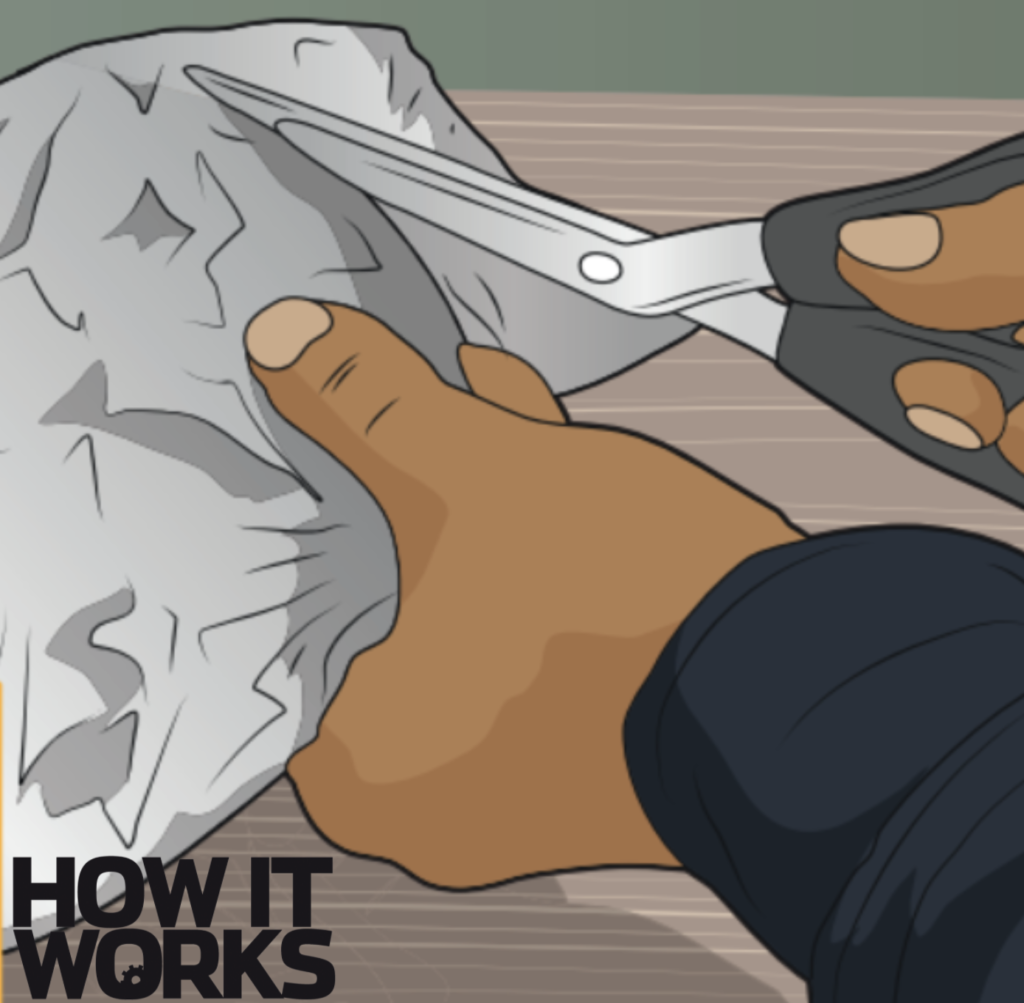
1. Cut a circle
Taking your scissors and foil, carefully cut out an even circle, filling the width of the foil.
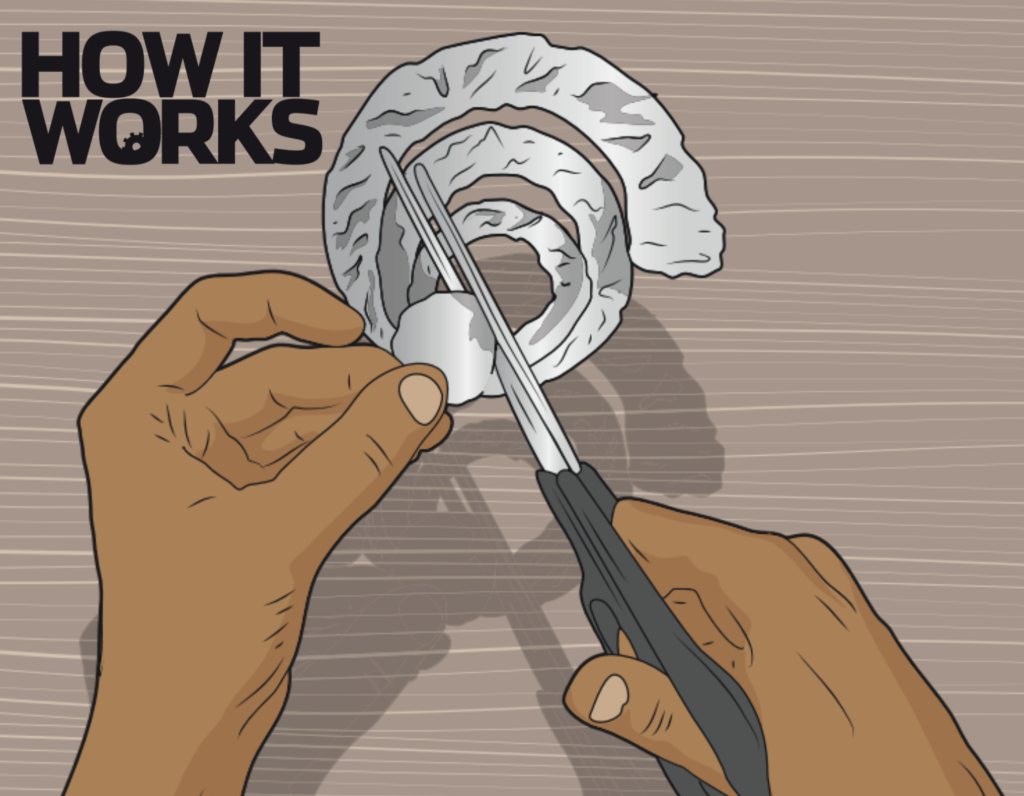
2. Spiral out
Starting at the edge of the circle, cut the foil into a spiral. Keep the scissors about two -and-a-half centimetres from the outside edge as you cut around towards the middle.
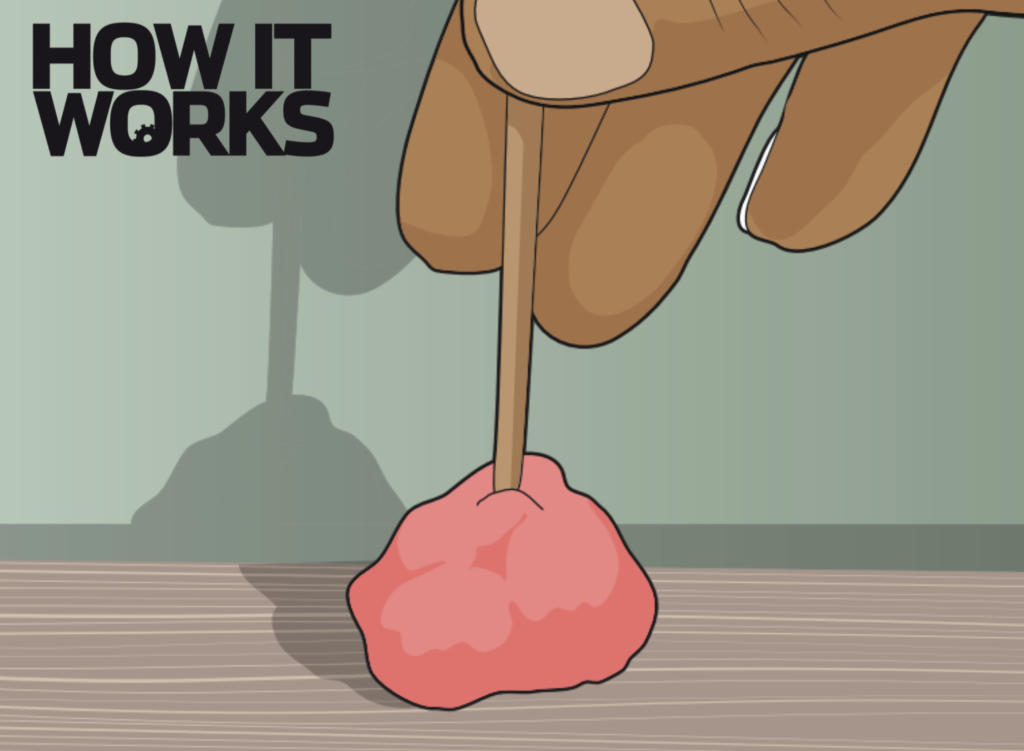
3. Make the stand
Stick a small handful of plasticine onto a flat surface and place your skewer vertically into it with the pointed end facing upwards – this will form the base for your spiral.
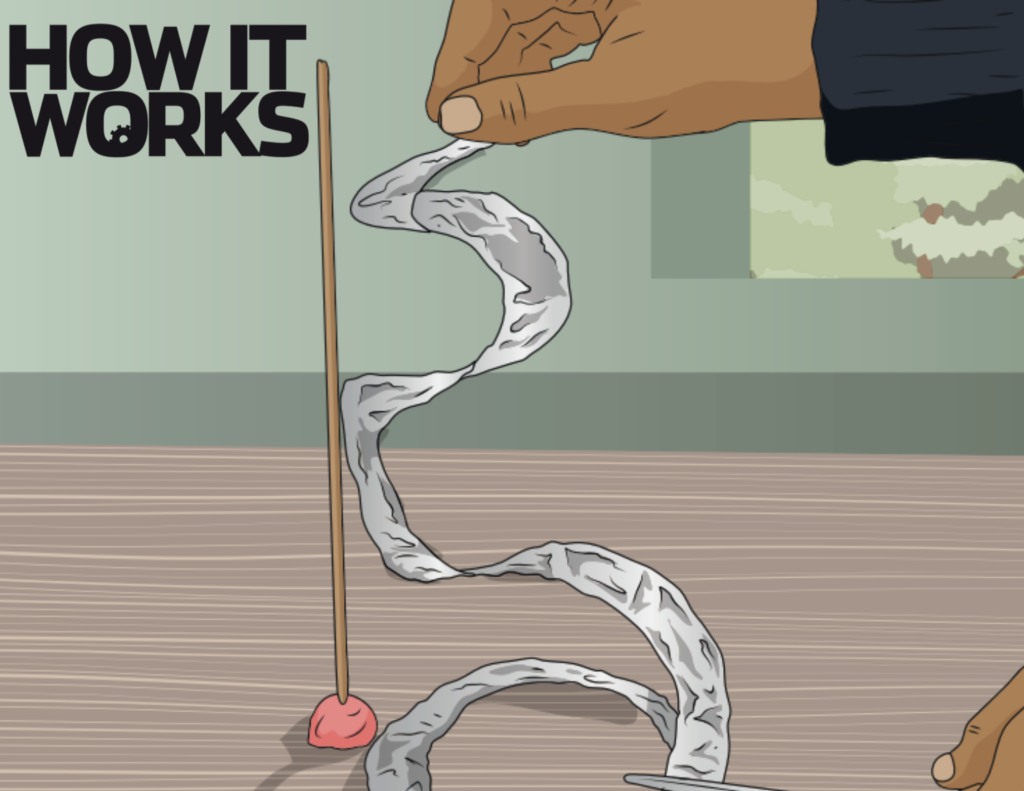
4. Adjust the spiral
Hold the foil spiral’s centre at the top of the skewer and cut the bottom so its length is roughly the same length as the skewer.
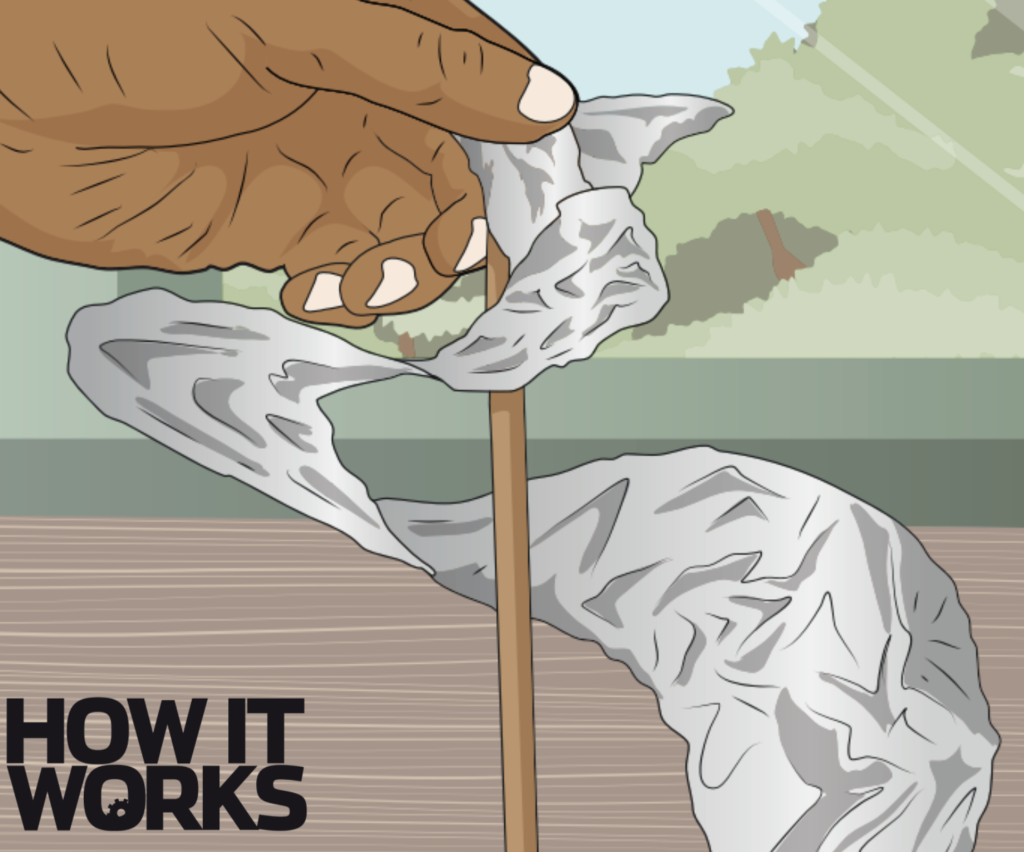
5. Pinch the top
Place the centre of the spiral over the pointed end of the skewer and pinch the foil so that it clings onto the top.
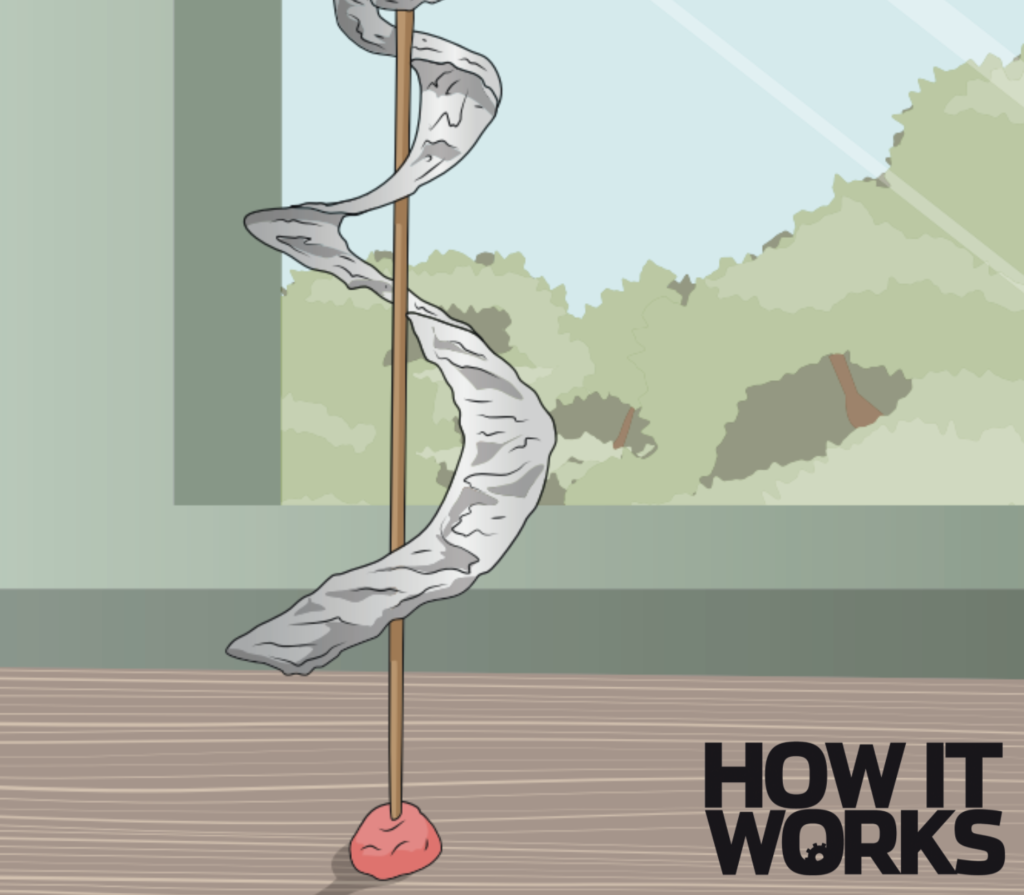
6. Final adjustments
Wrap the spiral around the skewer and re-cut its length so that the end hangs about five centimetres above the table.
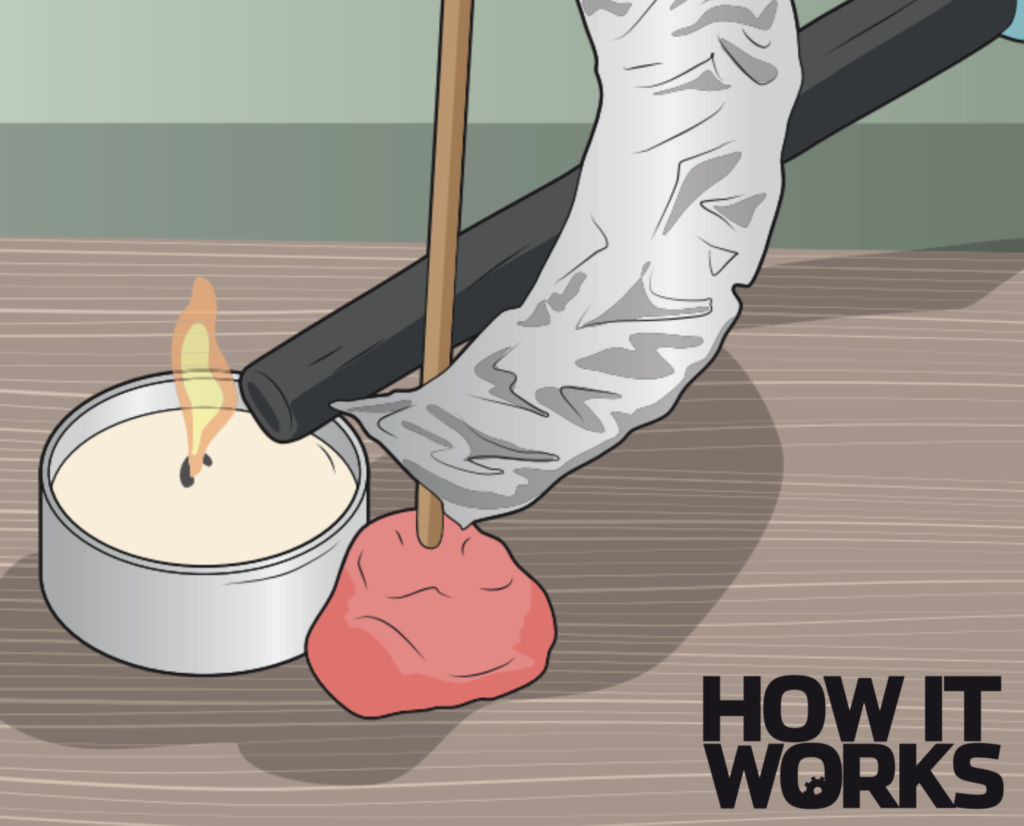
7. Power the turbine
Place a tea light next to the plasticine and carefully light it up with a lighter or match. Watch to see how quickly the foil begins to move. If it doesn’t, loosen the top slightly.
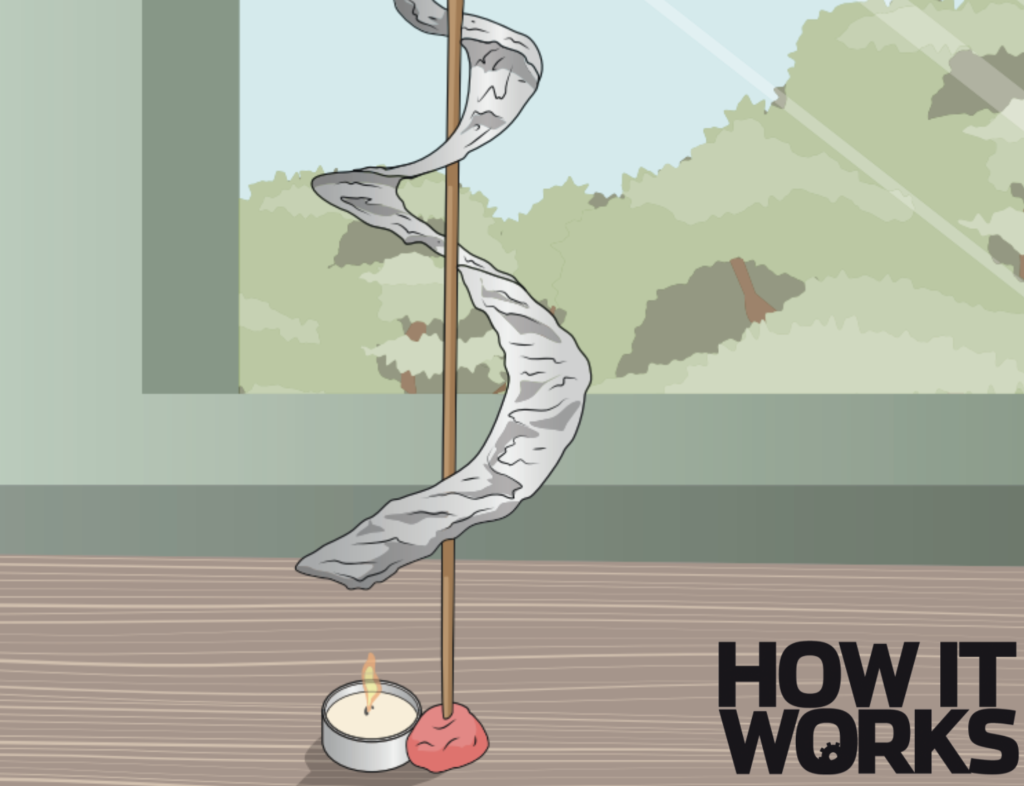
8. Turbine in motion
Observe the turbine as it turns around the skewer and glistens in the candlelight, pushed into motion by the flame’s rising heat in a process called convection.
Summary
This experiment works due to convection. When the tea light is lit, the flame heats the surrounding air particles, causing them to lose density and rise above the cooler air. As the particles rise they push against the foil, creating the movement. When building your turbine, make sure the foil is balanced securely but is still able to move freely.
For more science and technology articles, pick up the latest copy of How It Works from all good retailers or from our website now. If you have a tablet or smartphone, you can also download the digital version onto your iOS or Android device. To make sure you never miss an issue of How It Works magazine, subscribe today!




